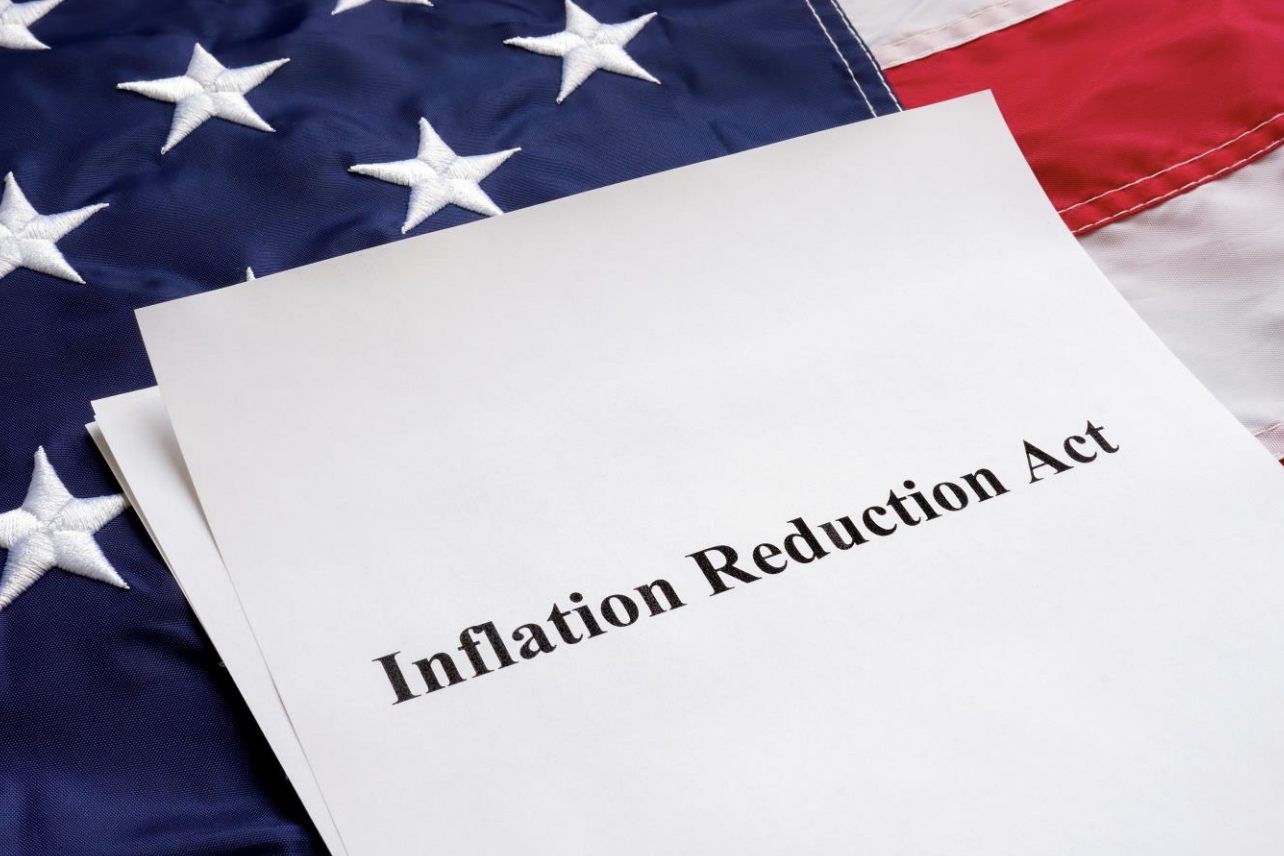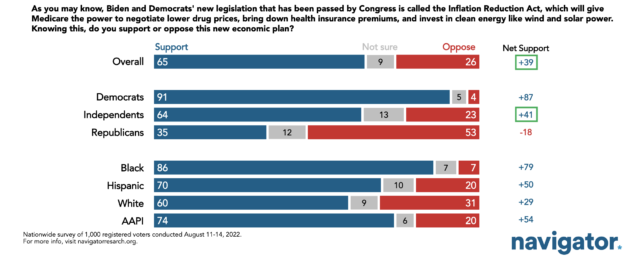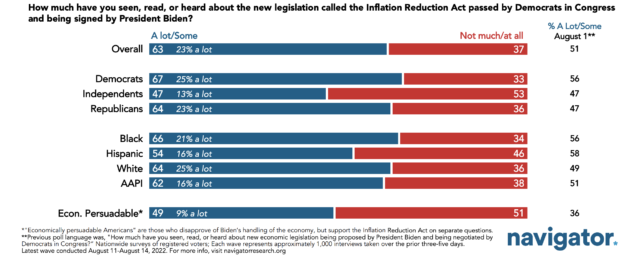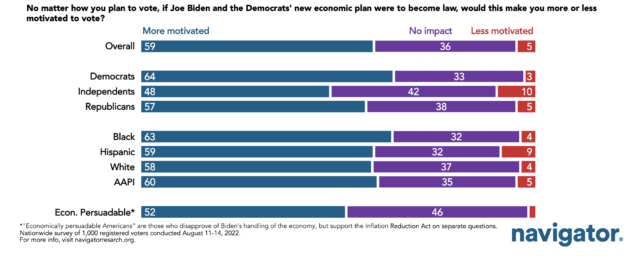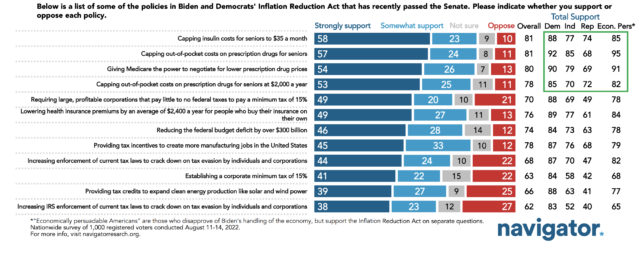- Following the Inflation Reduction Act’s passage, it has support from two in three Americans.
- The most supported policies from the Inflation Reduction Act are related to health care costs, including capping insulin costs, lowering prescription drug costs, and giving Medicare the power to negotiate for lower drug costs.
- Americans say the plan bringing down costs and showing Congress can get something done are the best descriptors, and messaging on the plan moves a majority to say Democrats are focused on the right things and to trust Biden and Democrats over Republicans on a range of economic issues.
The Inflation Reduction Act Earns Support From Two in Three Americans
Nearly two in three independents (64%) and almost two in five Republicans support the plan (35%).
The Share Hearing About the Inflation Reduction Act Has Increased by Double Digits in the Last Two Weeks
However, while 63% of Americans are hearing “a lot” or “some” about the Inflation Reduction Act, the share is much lower among independents (47%) and economically persuadable Americans* (49%).
Three in Five Americans Are More Motivated to Vote Due to the Passage of the Inflation Reduction Act
Democrats are most likely to say that passage of the legislation would make them “more motivated to vote” (64% more motivated). Nearly two in three Black Americans also say it makes them more motivated to vote (63%).
Policies to Bring Down Health Costs – Including Insurance and Drug Prices – Are Most Supported in Inflation Reduction Act
Among independents and Republicans, popular elements include capping insulin costs (77% and 74% support) and out-of-pocket costs (85% and 68%), Medicare negotiating for drug prices (79% and 69%), and tax incentives for domestic manufacturing jobs (76% and 68%).
